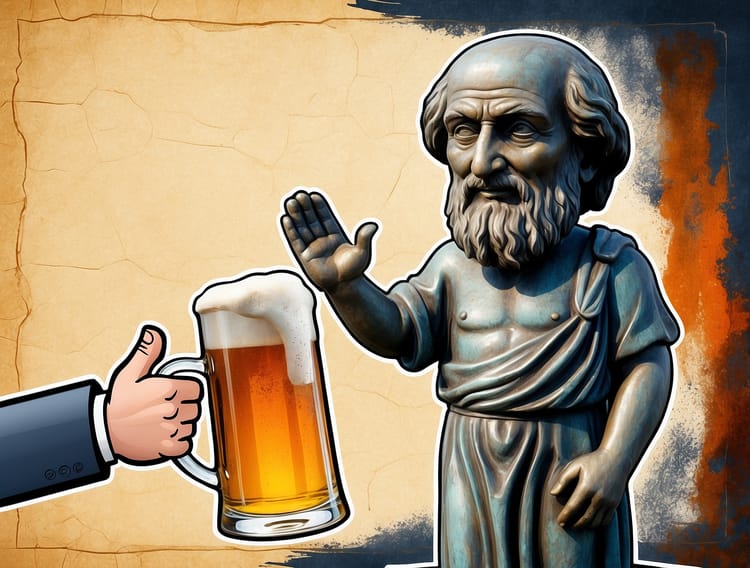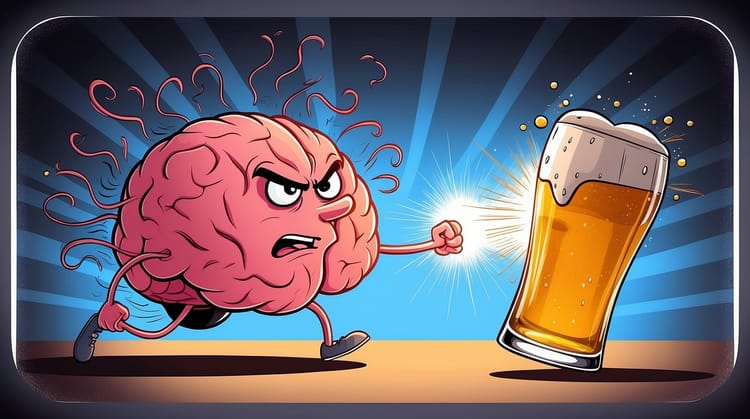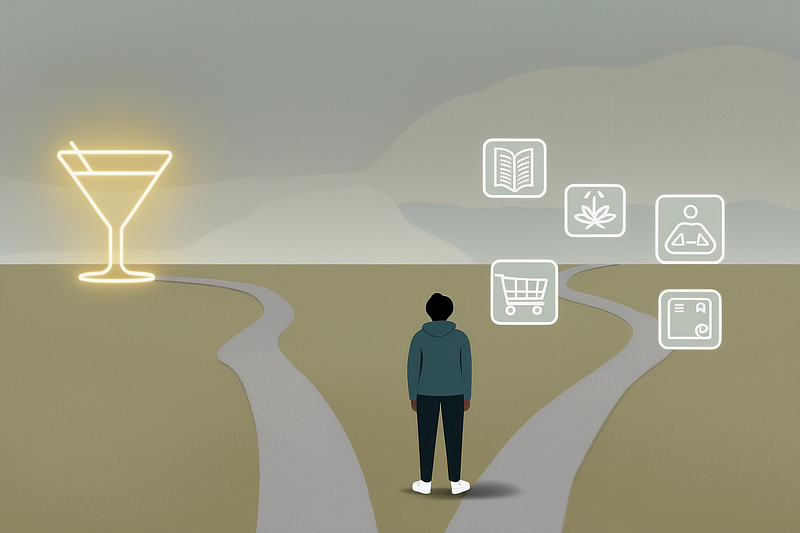Apprehension — From Bottles to Breakthroughs

Day 21 of sobriety. Who’d have thought I’d make it this far? Certainly not the little voice in my head that used to scream for a bottle every time life got… well life-y. But here I am three weeks in and let me tell you — it’s been a journey of ups and downs I never expected.
Sober Revelations: 21 Days of Clarity and Chaos
Today I’m peeling back the layers of my mind exploring the tangled web of worries that led me to drink in the first place. And maybe just maybe by sharing this we can all feel a little less alone in our struggles.
Let’s talk about worry. That gnawing feeling in the pit of your stomach that whispers “what if?” at 3 AM. The one that has you playing out worst-case scenarios like they’re your favourite Netflix series. Yeah that one.
For years I turned to alcohol to silence that anxious little voice. It was my off switch my reset button. The truth is it never resolved anything. It merely delayed the inevitable while adding a fog of regret and physical discomfort to the mix.
Now 21 days sober I’m facing these fears head-on. No liquid courage to hide behind. It’s terrifying and liberating all at once. I’m learning (slowly oh so slowly) that worrying is just “miserable in advance”. It’s like pre-paying for a vacation you’ll never take. What a rip-off right?
Shakespeare’s Wisdom: Rethinking Our Perceptions
Shakespeare once said “Nothing is either good or bad but thinking makes it so.” These words from centuries ago resonate surprisingly well today. My brain? It’s been making everything bad. Finances? Disaster waiting to happen. Relationships? Ticking time bombs. The future? Don’t even get me started.
But let’s ponder this Shakespearean wisdom for a moment. What if our thoughts really do shape our reality? It’s a powerful concept to consider especially for someone who’s spent years anticipating the worst at every turn.
The Reality Check: Facing Finances and Social Fears
Take my finances for instance. Are they objectively terrible or is it my panic-induced interpretation making them seem worse than they are? When I step back and look at the cold hard facts (which let’s be honest is terrifying in itself) things aren’t as apocalyptic as my anxiety would have me believe.
And those social situations I dread? Maybe they’re not minefields of potential embarrassment but opportunities for connection. I used to have pre-pre-pre drinks just to face these scenarios. Now it’s a shift in perspective that’s challenging to embrace. Yet when I approach them with even a hint of optimism (and yes a whole lot of deep breathing) they often turn out… okay. Sometimes even enjoyable. Who knew? Turns out you don’t need liquid courage to have a conversation after all.
This isn’t to say we can positive-think our way out of real problems. Trust me I’ve tried. But maybe ol’ Will was onto something about the power of perspective. Maybe just maybe by shifting our thoughts we can change how we experience our lives.
It’s a work in progress this whole “think positive” thing. Some days my brain still insists on painting everything in shades of doom and gloom. But I’m learning to question those thoughts. To ask myself “Is this really as bad as I think it is? Or am I making it so?”
Spoiler alert: More often than not it’s the latter.
After my AA meetings hearing others’ stories I feel a glimmer of hope. A connection. For a moment the world seems a little less scary. It’s not much but it’s something to hold onto.
Hope on the Horizon: Finding Strength in Sobriety
So here I am 21 days sober trying to rewire my brain. To see possibilities instead of pitfalls. To view challenges as well… challenges rather than insurmountable obstacles. It’s not easy. There are days when I’d rather crawl back into a bottle than face this mental gymnastics.
But then I remember — I’m the one in charge of my thoughts now. Not the alcohol. Not the anxiety. Me. And if thinking makes things so well, I might as well give this positive thinking gig a shot. What’s the worst that could happen? (Don’t answer that anxiety brain. We’re working on optimism here.)
So here’s to another day of facing our worries head-on. To not drinking even when our brains are shouting at us to do just that. To believing that maybe just maybe we’re stronger than we think.
If you’re out there struggling with your own anxieties know you’re not alone. We’re in this together one day at a time. And who knows? Maybe tomorrow that little voice of worry will be a bit quieter. Here’s hoping.
Until next time stay sober stay strong and remember — we’ve got this. Probably. Maybe. Oh there I go worrying again…
Stoic perspective worry:
Worrying about future events that haven’t occurred is a common human tendency, but one that Stoicism encourages us to overcome. The Stoics recognized that much of our suffering comes from our own imagination rather than reality. By focusing on what hasn’t happened, we rob ourselves of peace in the present moment and often create unnecessary anxiety.
Relevant quote:
“We suffer more often in imagination than in reality.” — Seneca
This quote reminds us that our minds often conjure up worst-case scenarios that rarely come to pass, causing us unnecessary distress.
Practical Stoic exercise:
Try this exercise to help manage worry about future events:
- Negative Visualization: Take a few minutes to imagine the worst-case scenario you’re worried about.
- Rational Analysis: Ask yourself:
a) How likely is this scenario to actually occur?
b) If it did happen, what specific steps could you take to handle it?
c) What aspects of this situation are within your control, and which aren’t? - Present Focus: Bring your attention back to the present moment. What can you do right now that would be productive and aligned with your values?
By practicing this exercise regularly, you can train your mind to respond more rationally to worries about the future.
Stoic thought for the day:
“You have power over your mind — not outside events. Realize this, and you will find strength.” — Marcus Aurelius
This thought encourages us to focus on what we can control — our own perceptions and reactions — rather than external events that may or may not happen. By cultivating this inner strength, we can face the future with greater resilience and peace of mind.




Member discussion